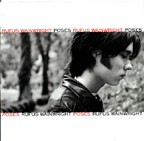|
he Definitive Louis Armstrong, another album in the series of compilation releases from Ken Burns' PBS Special "Jazz," offers a nearly complete history of jazz. Burns follows the career of jazz music's godfather from his early swing sound to his work in mainstream jazz, ending with Armstrong's more pop-oriented tunes from the 1960s. What the audience is exposed to is an encapsulated account of jazz music's rich history, told through the brass instrumentation of one of the genre's finest - Mr. Louis Armstrong. Burns has been wise to leave the compilation's twenty-five tracks unadulterated by modern studio technology, each track containing the buzz and fuzz associated with the earliest jazz recordings. Burns' determination to maintain the integrity of Armstrong's work reminds the audience that they are listening to a relic. They are experiencing an aural history of America's unique musical art form. Yet, unlike some aural histories, this collection does not discriminate - there is something for everyone. Those who are familiar with Armstrong's contemporary hits will enjoy original cuts of classics like "What a Wonderful World," "Hello, Dolly!" and "Blueberry Hill" (performed with Billy Butterfield). Fans of his earlier music will rejoice in the inclusion of such relics as "Tight Like This," and "St. Louis Blues." Definitive not only crosses oceans of recording dates, but musical styles as well. "West End Blues," and "Black and Blue" showcase Armstrong's talent and affinity for the blues while songs such as "Heebie Jeebies" and "Mahogany Hall Stomp" demonstrate Armstrong's ability to play upbeat dance tunes. Indeed, Definitive serves as a perfect musical history of the man himself - master of a brass sound that was at times sharp, loud, soft, upbeat, jazzy, or drenched in blues; and of a voice that was at times mournful, jovial, soulful. The Definitive Louis Armstrong is a great, twenty-five track lesson in the history of jazz for which novice and jazzhead alike will gladly pull an all-nighter. -Eric Newman
 Rufus Wainwright Rufus Wainwright Poses Dreamworks This is tough to pass along. After all, the junior Wainwright is superbly talented (as is often said here in the Bluegrass, greatness is in the bloodlines). He's one of the very few singer/songwriters who actually aims at something other than being a one-man Jagger/Richards, Lennon/McCartney, Plant/Page, or Dylan. And what chutzpah! He actually goes all the way back to Cole Porter, and occasionally even Gershwin (as in the wonderful ending to "Evil Angel" on this new album, an updated bit of "Rhapsody in Blue") for inspiration. But here's the rub. Many of the songs here are playful and precise. And though Pierre Marchand (Sarah McLaclan's producer/collaborator) adds glorious, involving arrangements of most every possible stripe, Wainwright sings in a leaden drone. Sometimes he lets loose with all of the potential quirks in his voice, and the results are then too affected, but more often he's Mr. Mumbles, and it sinks any hope of a full appreciation for much of this otherwise memorable collection. The title track traces the decline of a young man infatuated by glamour, and the melody's twists and lyrical touchpoints give it a duelling sense of nobility and fey foolishness. But it's the song that's leading Wainwright's voice around and makes it the exceptional firing-on-all-pistons number. Another performance worth noting is on father Loudon Wainwright III's "One-Man Guy" - and again, it's the song that pulls the singer into making himself heard in a why that jibes with the lyrics and (in this case, simple guitar) arrangement. Though this album is much more than just a bunch of superior demos waiting for someone to put on a covers album, it's a rough listen because of one big flaw that sits right in the middle. -T.E. Lyons
Melissa Etheridge has always exploded onto the music scene with an energy seemingly born from the depths of her soul. Her latest release on Island Records, Skin, falls in stride with an electrifying array of songs covering everything from heartache to self examination. Following a recent bout with change in her life, Etheridge chose to take her emotions and do what she does best, turn them into songs. The first track on Skin is instant gratification for any rock fan. Simple and classic in its beat, "Lover Please" reveals the jagged edge that defines Etheridge's music style. Although the album starts out heavy, "The Prison", the second track on Skin, opens doors to the heart as Etheridge sings as a prisoner of her own memories. "Down To One," perhaps the most honest track lyrically on the album, invites a new style for Etheridge. It's mellow and soft but with a hint melodic repeition. The first single off the album, "I Wanna Be In Love," has the ingredients to be a near perfect pop song. Mixed by Chris Lord-Alge, a producer who often works with talent such as Fleetwood Mac and Stevie Nicks, "I Wanna Be In Love" has the listener singing along by the first chorus. As "pop" sounding as it may be, this song still has the richness of real sentiment and passion. For years, Etheridge has been a household name in defining what it means to be a rowdy rock-n-roller. This time around, Etheridge takes a step back and reflects upon the layers of her own skin. She still has the grit and edge but she also explores her surprisingly fragile heart. -Sarah Zopfi
|
||
|
|
 Louis Armstrong
Louis Armstrong Melissa Etheridge
Melissa Etheridge